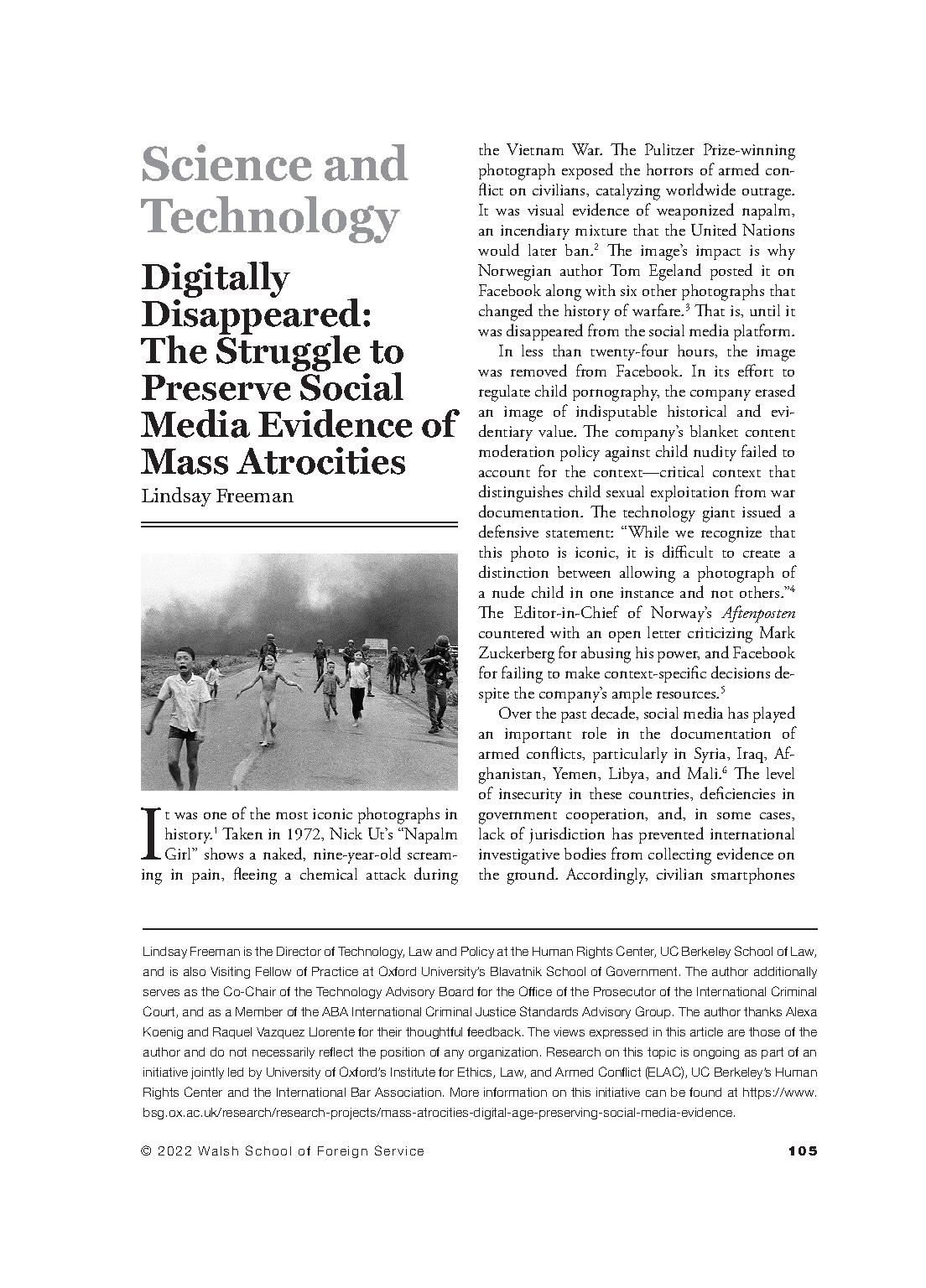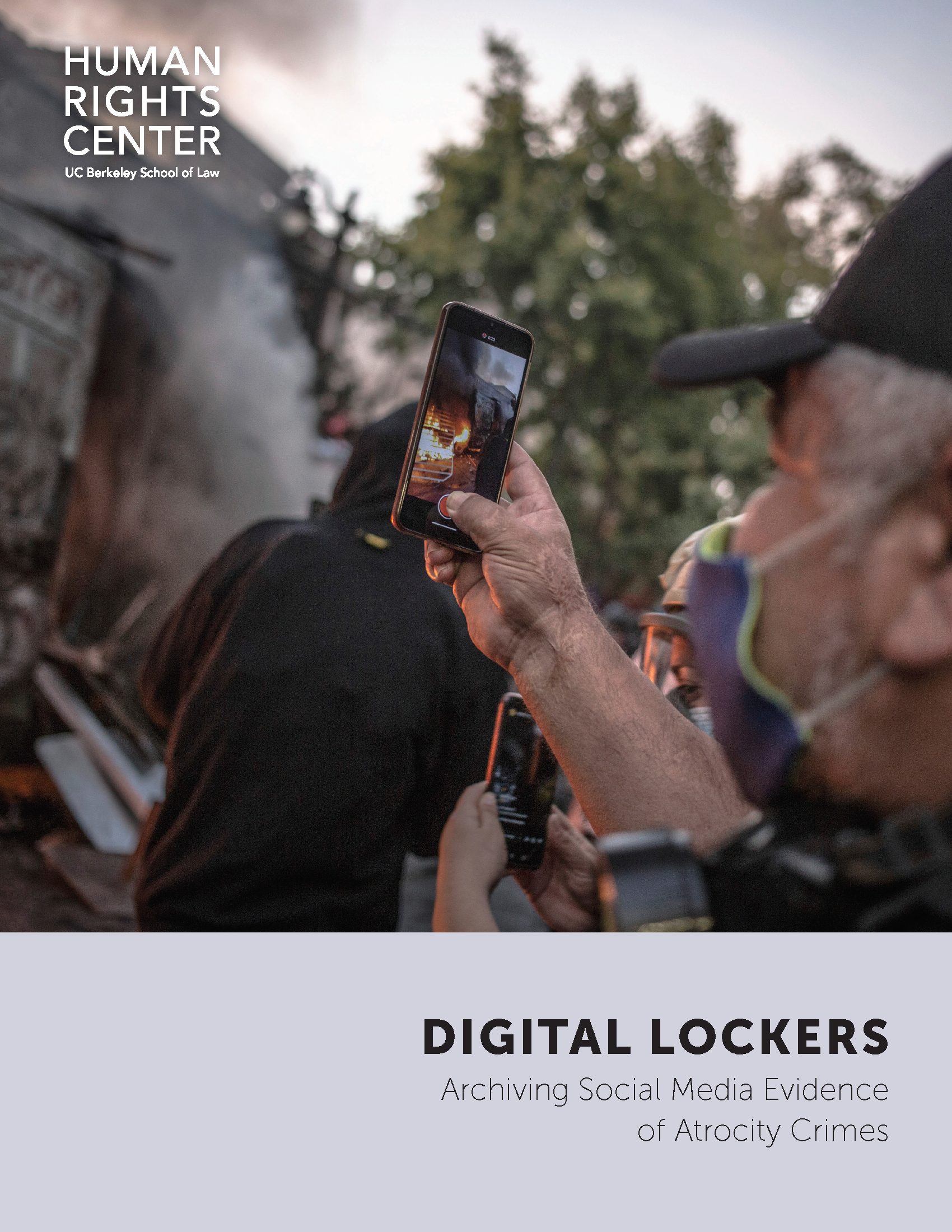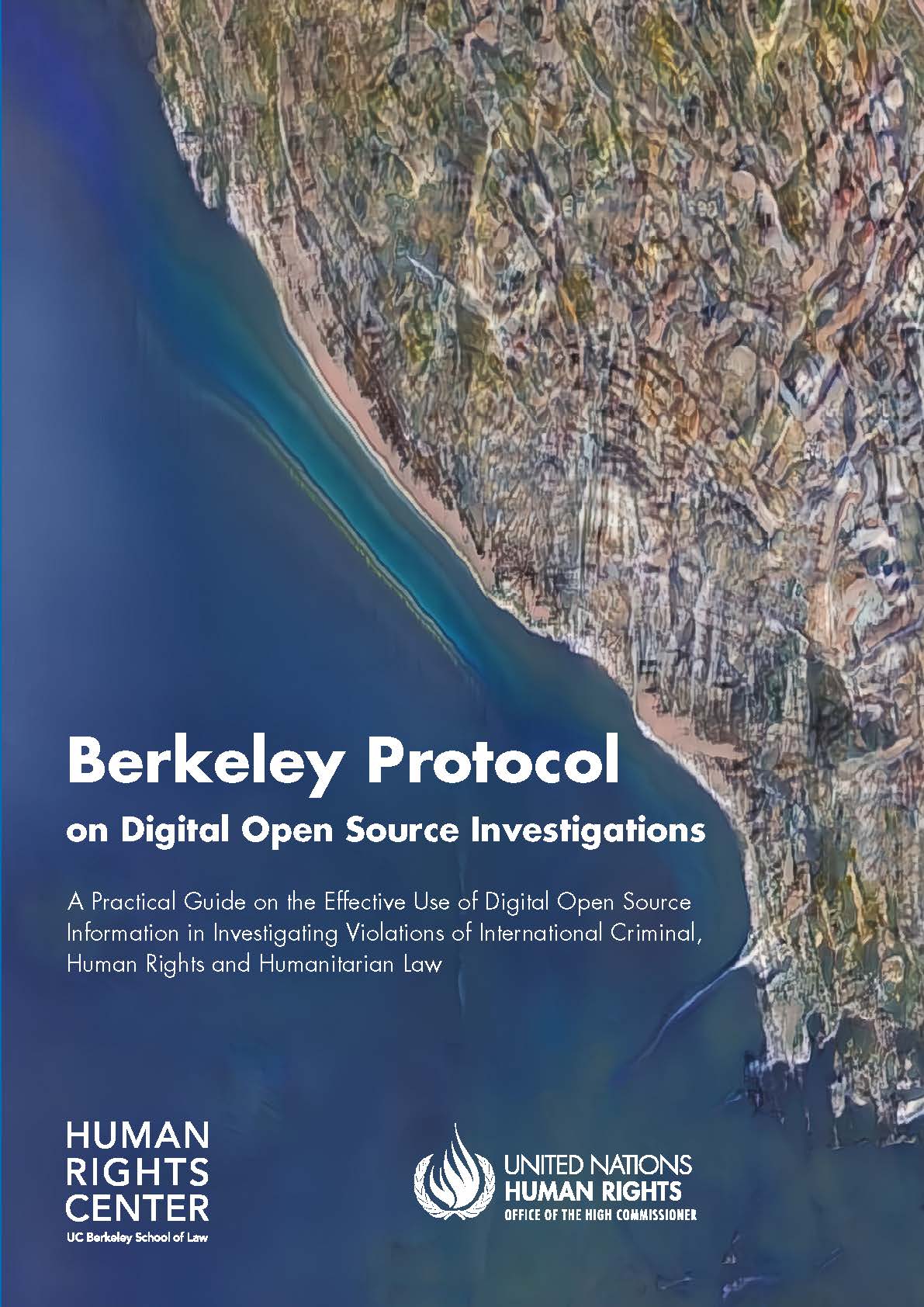
Social media platforms run by private companies have become the de facto record-holders of atrocity documentation. They are the main means by which witnesses, journalists, citizen reporters and first responders share their observations, videos and photographs with the international community. They are also the channel through which perpetrators occasionally disclose information about their illegal activities (for recruitment, intimidation, or other purposes), and they are increasingly used as a tool to spread disinformation, distribute propaganda and incite violence. These platforms have become our historical records and evidence archives, even though they do not have the incentive or infrastructure to properly and indefinitely preserve this content, nor the power to proactively share it with the appropriate authorities.
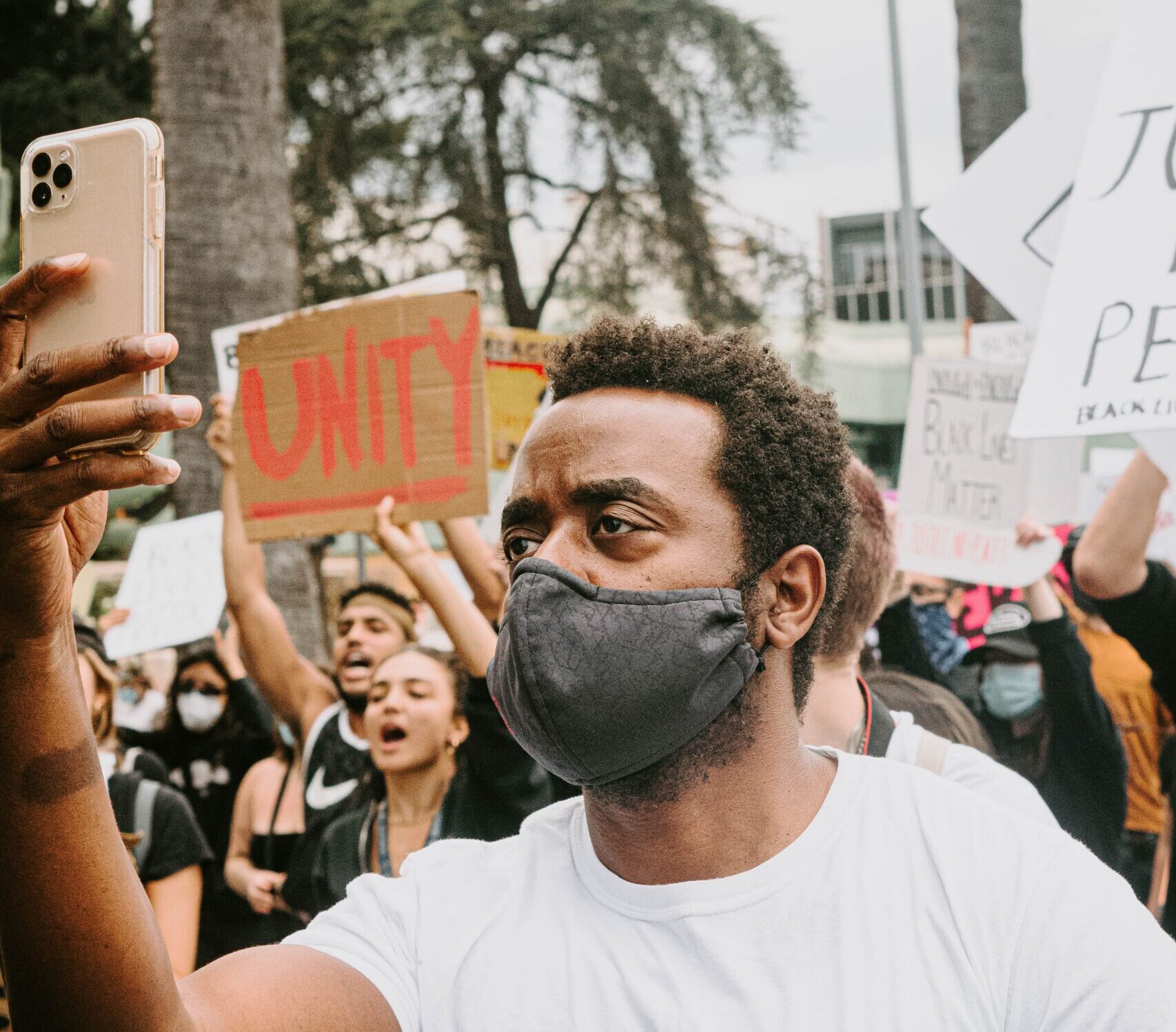
In fact, many of these companies are incentivised to do the opposite. The rate at which potentially relevant and probative content is removed is rapidly increasing as political and public pressure to remove harmful content mounts against them. Private technology companies should not, nor do they want to be, the custodians of evidence of international crimes. At the same time, most international justice and accountability mechanisms lack the investigative authority to compel these companies to preserve social media content—even when its evidentiary value is obvious—and disclose it. Without full and fast-responding cooperation from state authorities in the country in which these companies reside, valuable digital evidence and historical records are permanently destroyed. International justice and accountability mechanisms should be empowered to preserve and compel evidence of war crimes, crimes against humanity, and genocide.
Building on the Human Rights Center’s work on digital open source investigations, and the Oxford IPS’s work on improving investigations and documentation of atrocity crimes, this project:
- Addresses the relevance and probative value of user-generated content to international legal proceedings;
- Describes the significance of preserving the integrity of user-generated content in a forensic manner so that it can be used in legal proceedings, and the consequences of failing to do so; and
- Clarifies the requirements for and purposes of sharing relevant user-generated content with international and regional legal authorities.
- Looks at how rules around information-sharing and disclosure differ for technology companies based on whether the request is made by a domestic or international legal authority.
- Assesses whether an international investigative mandate could be vested with the power to compel content directly from technology companies through an innovative legal mechanism.
News
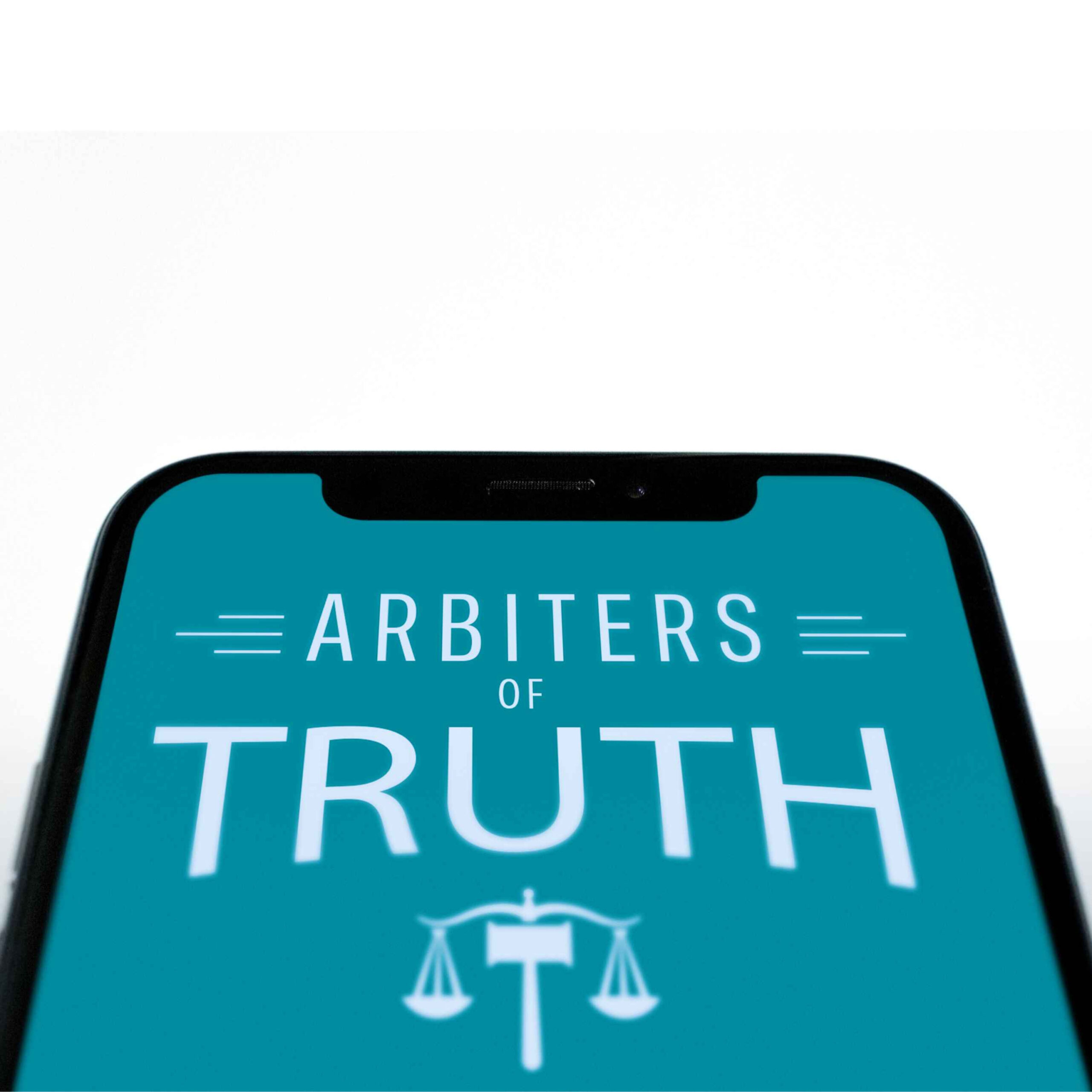
April 14, 2022
Bringing Evidence of War Crimes from Twitter to the Hague
HRC in the News — Lawfare: Bringing Evidence of War Crimes from Twitter to the Hague, featuring Alexa Koenig.

March 4, 2022
Digital Detectives Scour Social Media for Evidence of War Crimes
Activists look for evidence of war crimes on social media to hold Putin accountable | Kirill Kudryavstev/AFP via Getty Images. HRC in the News —
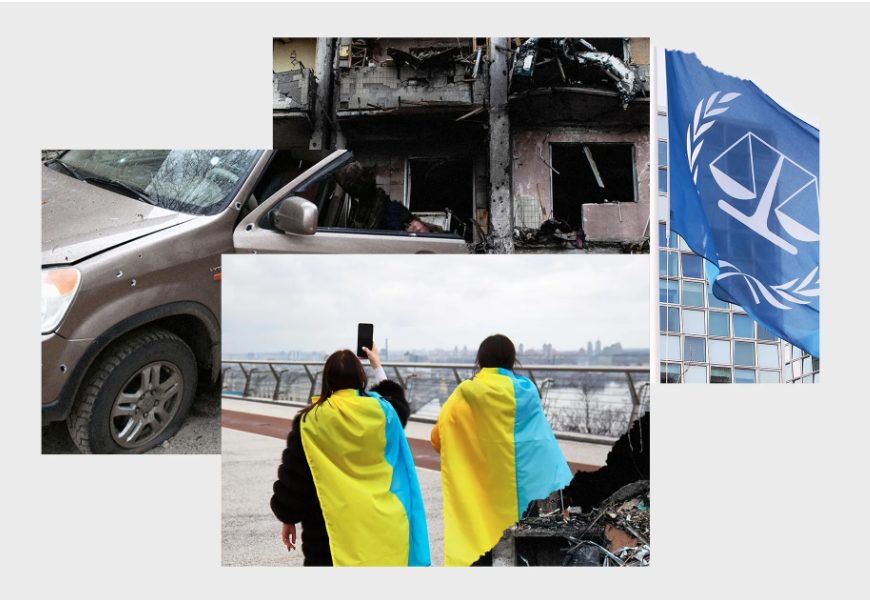
March 3, 2022
What Russia is Doing to Ukraine Must be Preserved – Not Just Seen
Photo Illustration: SAM WHITNEY; GETTY IMAGES. HRC in the News — WIRED: What Russia is Doing to Ukraine Must be Preserved – Not Just Seen,

March 2, 2022
The Int’l Criminal Court’s Ukraine Investigation: A Test Case for User-Generated Evidence
Image of Kyiv, Ukraine by Eugene via Unsplash Commentary — Just Security: The Int’l Criminal Court’s Ukraine Investigation: A Test Case for
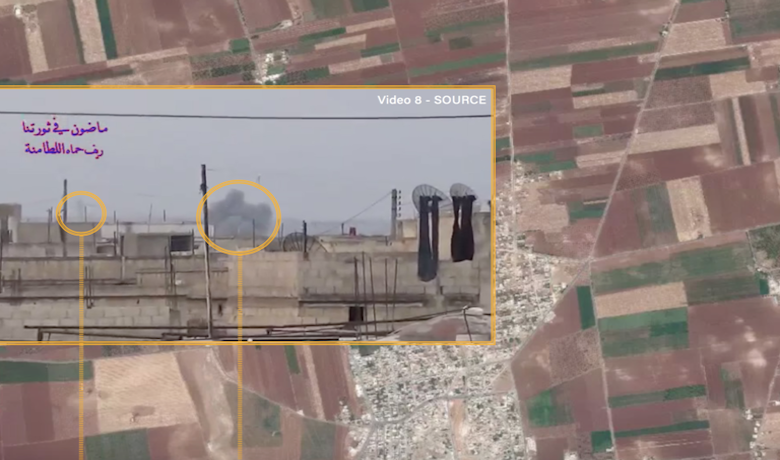
April 1, 2021
Strengthening Atrocity Cases with Digital Open Source Investigations
Satellite imagery depicting an attack in Syria. Commentary — Articles of War at the Lieber Institute of West Point: Strengthening Atrocity Cases with

January 26, 2021
HRC in the News — OpinioJuris: Open-Source Digital Evidence in International Criminal Cases: A Way Forward in Ensuring Accountability for Core Crimes? by Konstantina Stavrou, with mention of

